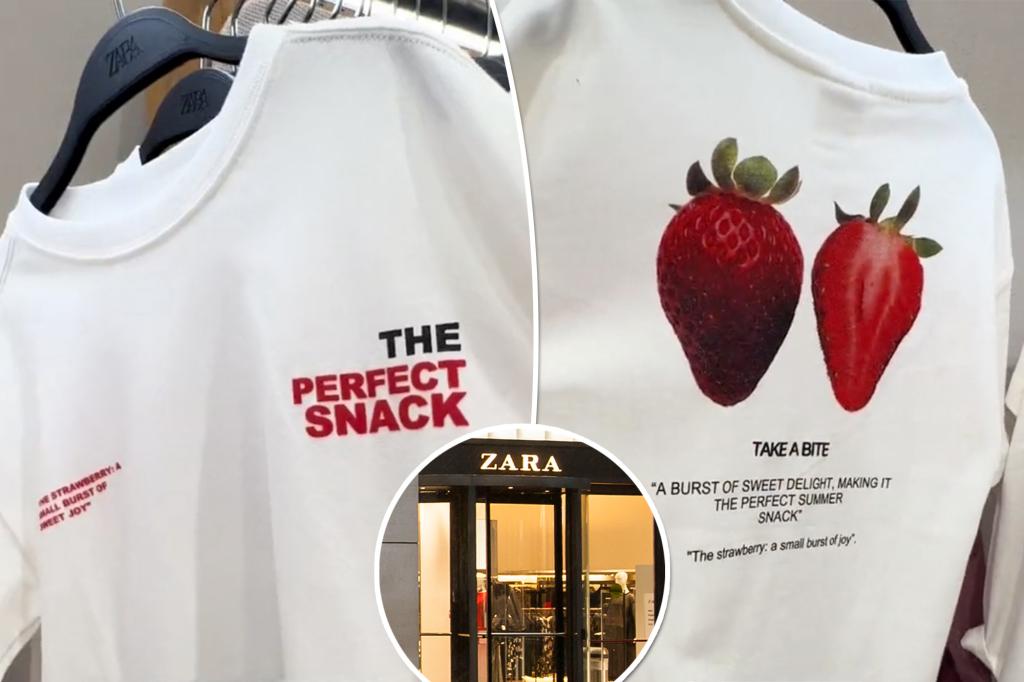Laura Wilson, a TikTok influencer and mother from London, expressed her disgust with fast-fashion retailer Zara for offering a sexually suggestive shirt for children. The $14 kiddie tee featured phrases such as “The Perfect Snack” and “A burst of sweet delight,” which Wilson found inappropriate and unnecessary for children. She raised her concerns through a viral video that garnered a lot of attention and criticism from both supporters and opponents.
The white shirt with black and red lettering that created the controversy was found in the “Girls” section of a Zara store. Wilson highlighted that the messages on the shirt, along with suggestive imagery, were unacceptable and a cause for concern. Zara responded to the backlash by issuing an apology for any potential offense caused by the shirt and removed it from their stores and website. The brand clarified that the intention behind using the word “snack” was innocent and linked to the traditional meaning of the term.
Despite some backlash from individuals defending Zara, Laura Wilson stood by her disapproval of the shirt. She explained that her concerns were mainly related to the potential implications of the word “snack” in the context of children’s clothing, especially in a society where child safety is a significant concern. Wilson received negative comments and criticism for her views but maintained that she felt physically sick and uncomfortable with the shirt’s messaging. She commended Zara for taking the shirt off their shelves, emphasizing that the wording used was unnecessary and age-inappropriate.
Zara’s controversial shirt is not the first time the fashion giant has faced backlash for its marketing decisions. In the past, the brand has come under fire for various ad campaigns and products that have been deemed offensive or inappropriate by consumers. One such incident involved Zara’s ad campaign featuring mannequins in white sheets, which some argued resembled violence in the Gaza Strip. The brand was quick to retract the promotion in response to the public outcry.
The fashion industry as a whole has had its share of controversies, with brands like Balenciaga facing backlash for promoting questionable content. In 2022, Balenciaga received criticism for featuring toddlers in bondage-style apparel in an ad campaign. The luxury label admitted that it had made a wrong choice and acknowledged that they failed to assess and validate the images appropriately. Wilson’s criticism of Zara’s shirt aligns with the ongoing trend of consumers holding brands accountable for their marketing strategies and product offerings, particularly when it comes to children’s clothing.
Laura Wilson’s stance on Zara’s controversial child shirt reflects a broader conversation about age-appropriate clothing and the implications of messaging in fashion. Her viral video and subsequent commentary underscore the power of individual voices in prompting brands to reassess their products and take responsibility for potentially offensive content. As consumers increasingly demand transparency and ethical practices from fashion retailers, incidents like the Zara shirt controversy serve as reminders of the importance of sensitivity and awareness in the industry.


